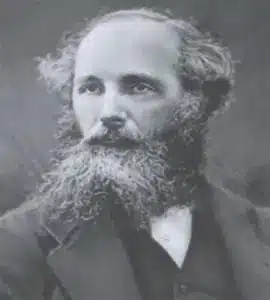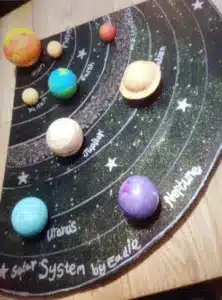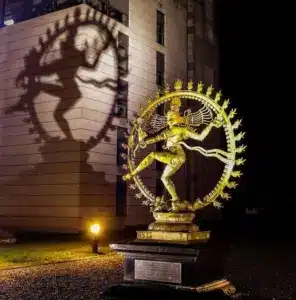Do Scientists Believe in God?
There is no contradiction between Science and God. Both exist in their own realms. In reality, Science and God complement each other. However, they differ in their subject matter. Science is the collection of factual knowledge obtained through evidence, while God is the subject of history, religious texts, and faith. Just because Science has not proven the existence of God, it doesn’t mean God does not exist. Since Science is an open-ended subject, the existence of something that has not yet been proven may be accepted in the future. There are many things we can feel the presence of, even if we don’t have proof. Today, we will look at these to see do scientists believe in God or not.
Some time ago, I shared two blogs with you all about the existence of God based on Scientific reasons and Logical Justifications to believe in God. Since then, many students have been asking me why scientists do not believe in God if he exists. So, today we are going to explore this incomplete truth and see do famous scientists believe in God.
There are different opinions about this matter. Many people think that scientists do not believe in God, but several great scientists actually accepted the existence of God.
1. Renowned French chemist and pharmacist Louis Pasteur is considered the Father of Immunology. He said,
“A Bit of Science distances one from God, but Much science nears one to him.”
2. Similarly, American scientist William H. Calvin stated,
“If you study science deep enough and long enough, It will force you to believe in God.”
3. Sir Isaac Newton was a very religious person and believed that through Numbers, people could understand God’s design. He said once,
“In the absence of any other proof, the thumb alone would convince me of God’s existence.”
4. The great scientist Galileo Galilei, once said,
“I do not feel obliged to believe that the same God who has endowed us with sense, reason, and intellect has intended us to forgo their use.”
5. Renowned physicist Richard P. Feynman asserts
“I do not believe that science can disapprove the existence of God; I think that is impossible. And if it is impossible, is not a belief in science and a God- An ordinary God of religion- A consistent possibility?”
6. Nikola Tesla, a renowned scientist says,
“The gift of mental power comes from God, a Divine being, and if we concentrate our minds on that truth, we become in tune with this great power.”
7. Renowned scientist Albert Einstein, who enlightened the world with a new perspective, expressed his curiosity by stating,
“I want to know how God created this world. I am not interested in this or that phenomenon, in the spectrum of this or that element. I want to know his thoughts the rest and details.”
Einstein believes in the mutual harmony and natural relationship between religion and God. He said once,
“Science without religion is lame, and Religion without Science is Blind.”
Some Atheists claim that Albert Einstein explicitly mentioned in “The God Letter” that he did not believe in any God. The word God is a weakness for him.
But the truth is, Einstein wrote this letter because he was fed up with many Atheists and Fanatical individuals. This is because many Fanatical individuals started attempting to portray him as a religious figure based on his quotes.
At that very moment, Einstein expressed his concern about atheists and said,
” Fanatical atheists whose intolerance is of the same kind as the intolerance of the religious fanatics.”
However, Einstein also made it clear that he does not believe in a personal God who intervenes in human affairs by showing love, or hatred, or sitting on a throne in the sky. However, that does not mean that there is no God.
In fact, Einstein believed in Spinoza’s concept of God, whereas Spinoza did not believe that God takes on a physical shape. Instead, Spinoza sees God in nature.
Another statement from Einstein during a conversation with the German anti-Nazi diplomat ‘Prince Hubertus Zu Loewenstein’. Where Einstein clears his views on ‘The God Letter’ and says,
“Because of such harmony in the cosmos which I, with my limited human mind, can recognize, there are yet people who say there is no God. But what really makes me angry is that they quote me for the support of such views.”
8. Another famous scientist James Clerk Maxwell
Maxwell established several principles in math and physics. In 1875, this Scottish physicist proposed the electromagnetic theory, which made the invention of radio and television possible. This theory provided evidence for the existence of God.

Credits: PhysicsWorld.com
There is a very popular incident from his life. He had an assistant who didn’t believe in God. He believed that the universe was created by the Big Bang.
In this context, Maxwell came up with a trick to explain to his friend that God exists. He created a model of the solar system and placed it in a room.
When his assistant saw this model, he was surprised and asked, “Who made this model?”
Maxwell said, “No one made this model, it created itself.”

Credits: Pinterest Helen Saunders
The assistant said, “How is that possible? Surely someone must have made it.”
Maxwell laughed and said, “I was in the next room when there was a loud explosion. When I came into this room, I saw this model.”
Maxwell’s friend laughed too, and said, “You’re kidding. How can such a beautifully arranged model be made from just one explosion?”
Maxwell smiled and said, “If a small model cannot be created from an explosion, then how can such a huge universe, billions of galaxies, and our solar system with its precise, organized, and beautiful creation be formed from the Big Bang?”
Further, Maxwell states,
“Just as there are laws of Physics, chemistry, and mathematics created by scientists and mathematicians, similarly, the laws governing the universe have been created by some divine power. I call that power as God.”
9. Renowned scientist Carl Edward Sagan also states that one day science will surely find evidence of God’s existence. He mentions this in his book ‘Cosmic Dance of Shiva’, which is known in Hinduism as the ‘Natraj Nritya’. Through this, he attempts to bring science and religion together on a common platform.
In a television series, “Cosmos,” Carl Sagan said that
“Hinduism is the only religion in which the time-scale of the universe corresponds to the time-scale recorded by modern science over billions of years.”

Credits: Ian A Crawford https://www.researchgate.net/
Sagano filmed this segment in a temple in New Delhi, showing a statue of Shiva, the god of the universe, as a cosmic dancer. Carl Sagan compared the cosmic dance of Nataraja to the modern study of subatomic particles. The statue is now on display in the Plaza of the European Organisation for Nuclear Research (CERN) in Geneva.
Carl says, “Science is not only compatible with spirituality; it is a profound source of spirituality. When we recognize our place in an immensity of light-years and the passage of ages, when we grasp the intricacy, beauty, and subtlety of life, then that soaring feeling, that sense of elation and humanity combined, is surely spiritual.”
10. World’s famous Mathematician Srinivasa Ramanujam says,

Credits: Amazon
“An equation for me has no meaning unless it expresses a thought of God.”
Prof. G. H. Hardy asked Ramanujam, “How do you come up with straight formulas without any derivation?”
To this, Ramanujam replied, “They come to me directly as intuition from God.”
11. Modern Scientist Michio Kaku says,
“I have concluded that we are in a world made by rules created by intelligence. Believe me, everything that we call chance today won’t make sense anymore. To me it is clear that we exist in a plan which is governed by rules that were created, shaped by a universal intelligence and not by chance.”
Michio Kaku makes another statement, that proves that scientists believe in God:
“The laws of physics and the behavior of subatomic particles mirror the ‘mind of God’.”
12. Biologist Charles Darwin also believed in God. His belief was fully based on the Abrahamic God doctrine. In 1879, he stated,
“I have never been an atheist to deny the existence of God.”
13. In addition to this, Paul Denis has also argued in his book, ‘The Mind of God,’ that God is the surgeon of this universe.
Conclusion:
Whenever science has tried to understand the mysteries of the universe in depth, it has found God and spirituality as its foundation. If we take a closer look, most of the great scientists have indeed accepted the existence of God. However, they have not accepted it in the same way as ordinary people do.
However, whenever they have thought without being bound by any religion, they have certainly come to the conclusion that there is a Creator, a divine power. Some have considered it as a formless and all-powerful energy, while others have seen it as the creator of the universe.
I hope you liked this blog.
Don’t forget to share it with your loved ones on your favorite social media platforms.
We are addicted to advertising so please turn off the AD BLOCKER.
Join us in this journey of enlightenment and spiritual success.

